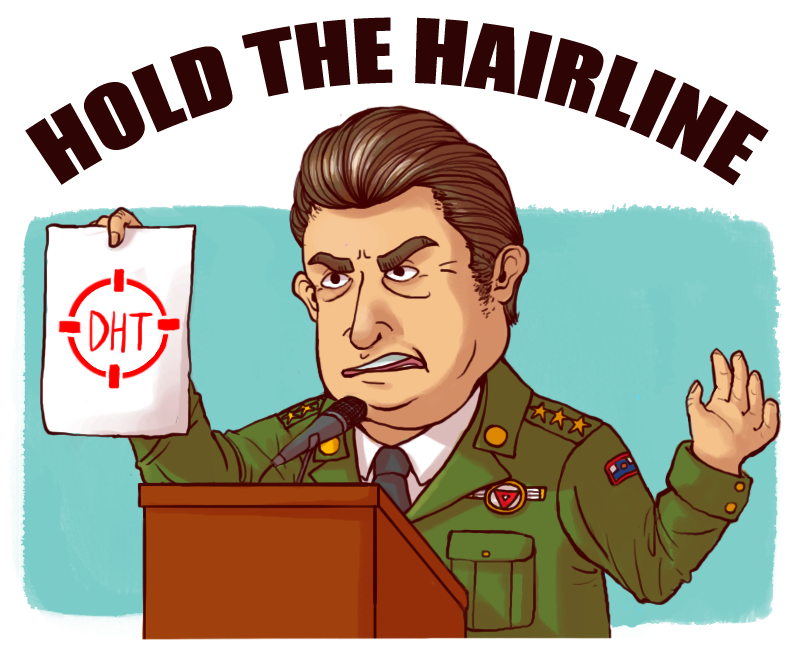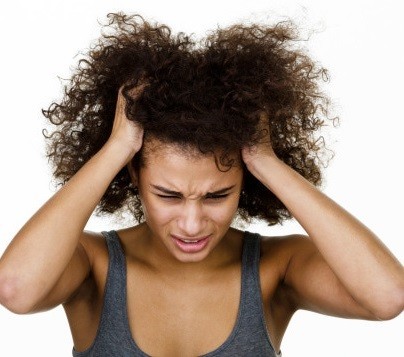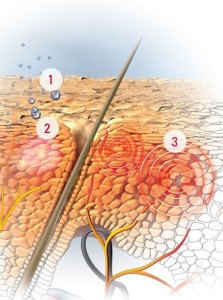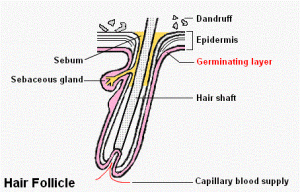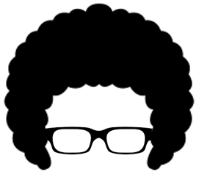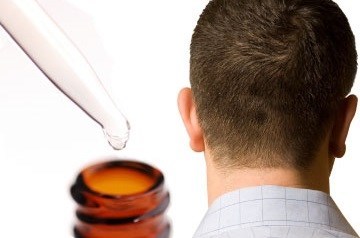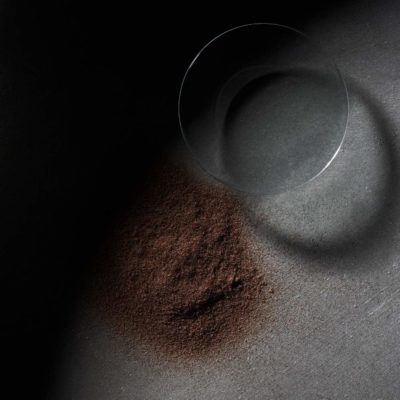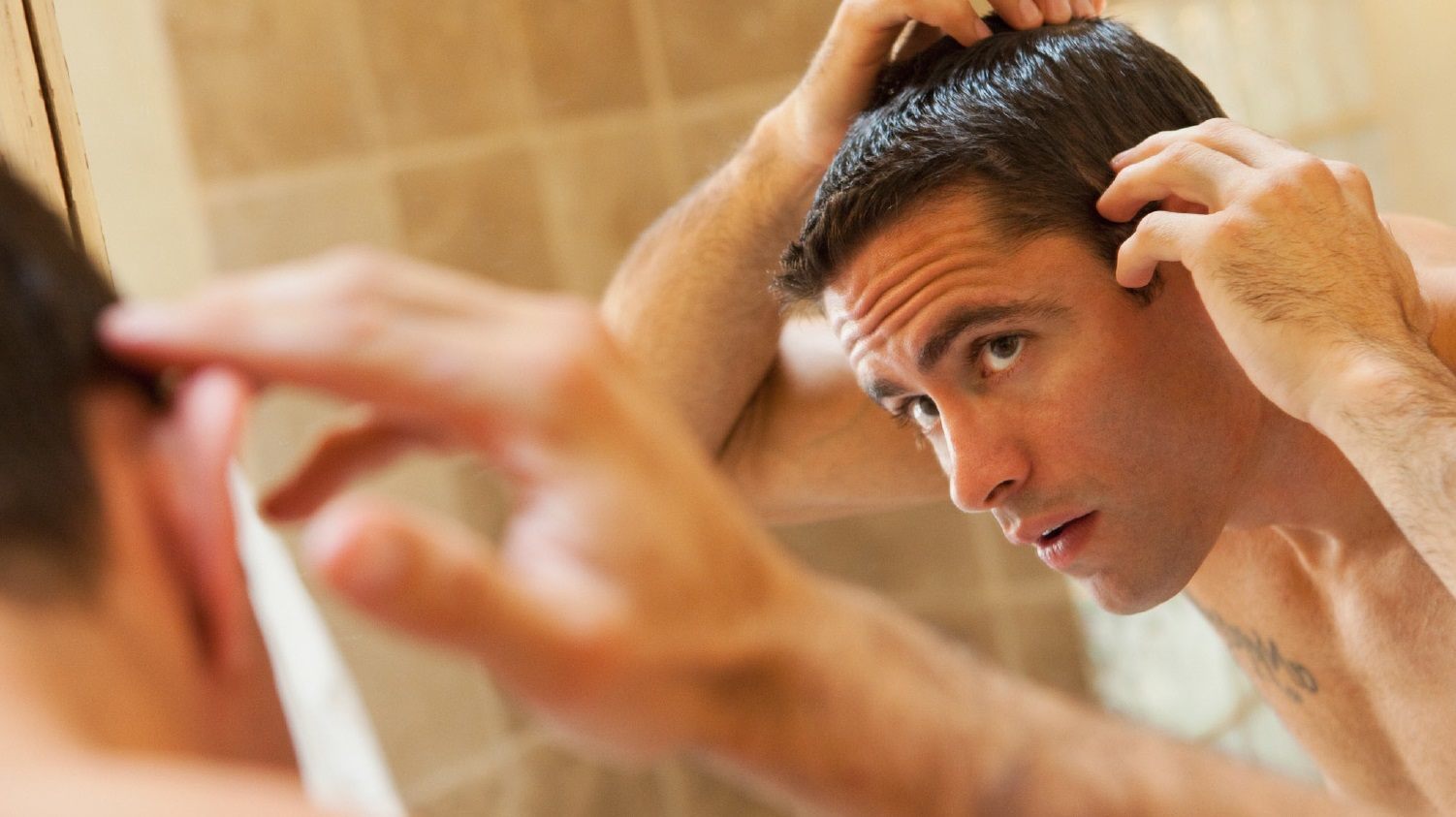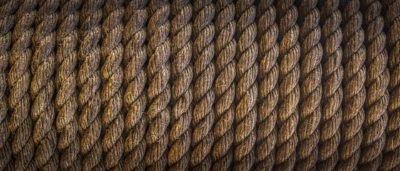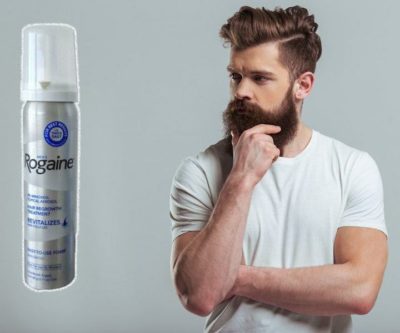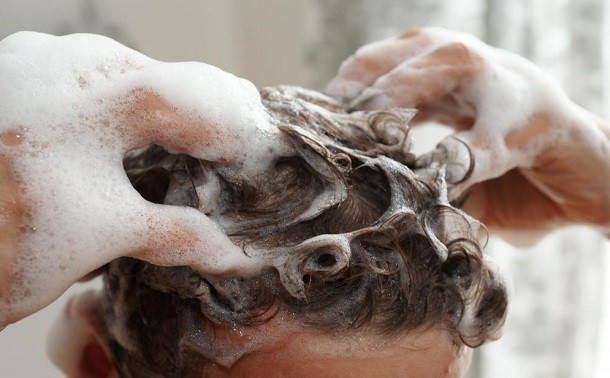Last Updated on August 25, 2020 by Hold the Hairline Team
Dandruff is a common scalp condition that affects many adults. It can lead to dryness, itchiness, flaking, and sometimes even hair loss due to the trauma hair follicles endure from excess itching. Does dandruff cause hair loss though? It is not likely that dandruff is the primary antagonist in someone suffering from hair loss, which in most cases is caused by an individual’s genetics. At the very most, it is a secondary cause that may accelerate hair thinning and loss. Dandruff and hair loss do have an interesting relationship though. Fortunately, there are many products that are effective in clearing up dandruff and preventing further flaking.
The Mayo Clinic indicates that dandruff is rarely a serious medical problem. However, that doesn’t mean it isn’t one of the more bothersome chronic conditions. White flakes showing up on dark clothing can be embarrassing to deal with and constantly scratching your head may have people wondering what is going on with you.
What is Dandruff?
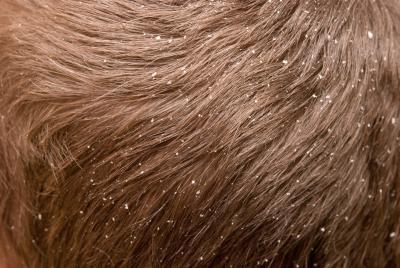
Dandruff is an easy nuisance to spot. White and/or oily flakes will begin to show up in the hair, forehead, and shoulders. Furthermore, you may experience the discomfort of a scaly, itchy scalp. This condition will usually worsen during the winter months due to indoor heating. If you get itchy skin during the winter you may be prone to get dandruff as well. By the same token, dandruff will lessen during the summer months, as air conditioning does not have the same effect. Causes of dandruff include not shampooing the hair and scalp enough, dry skin, certain skin conditions such as eczema, fungus, poor diet, or sensitivity to hair care products. Sometimes just using too many styling products such as mousses or gels can build up on your scalp, make it oilier, which in turn leads to a dandruff situation.
Fortunately, most cases of dandruff are pretty mild and can be treated with OTC cream or shampoo. For more severe cases, seeing a doctor or dermatologist may be necessary. They will probably prescribe you a steroid lotion or a special extra strength shampoo. Sometimes, people may think they have dandruff but it might actually be seborrheic dermatitis which is known to cause temporary hair loss. Seborrheic dermatitis has many of the same traits as common dandruff, but it typically is marked by more inflammation and itchiness as well as being painful to touch.
Top dandruff shampoos:
- Nizoral. Nizoral contains ketoconazole which is a broad-spectrum anti-fungal shampoo. This is a good option for those suffering from genetic hair loss because ketoconazole has been shown to have a positive effect on reducing hair loss.
- Head and Shoulders. The most popular anti-dandruff shampoo on the market. The key ingredient in this shampoo is zinc prithione which is both antibacterial and antifungal.
- Neutrogena T Gel. This is a tar-based shampoo. Coal tar is actually a byproduct of coal manufacturing. It helps treat conditions like psoriasis, seborrheic dermatitis, and dandruff.
- Neutrogena T Sal. These types of shampoos that contain salicylic acid are effective at removing scale but they leave the scalp pretty dry afterward. It is a good idea to use a deep conditioner or natural oil such as argan oil after showering.
- Selsun Blue. Selsun Blue is one of the anti-dandruff shampoos (probably the most popular one) that contain selenium sulfide. Selenium sulfide slows skin cells from dying and battle Malassezia. Be careful though as it can discolor those with lighter hair or graying/chemically treated hair. Rinse well!
- Tea Tree Oil. This is an organic method of treating dandruff. It has antiseptic, antifungal, and antibiotic properties. It is known to be effective against more mild cases of dandruff. It tingles when you rub it into the scalp, which feels really nice on an itchy red scalp.
Can Dandruff Cause Hair Loss? The Relationship Between Dandruff and Hair Loss
People that say dandruff is the direct cause hair loss need to check where they are getting their information. In research thus far, very little evidence points to the idea that there is a cause-effect relationship between these conditions. Dandruff is highly unlikely to cause permanent hair loss. However, itchy scalp hair loss is a thing. Vigorously scratching hair can result in temporary loss, especially if the hair is already thinning out and weak. The only thing that somewhat implies dandruff causing hair loss is that dandruff is more commonly seen in men (and men more commonly experience hair loss). Most men that suffer from male pattern baldness also have some form of dandruff. Some researchers, therefore, think male hormones may play a role in dandruff.
Thinning hair has to do with your hair follicles, which are located beneath the top skin of the head (the scalp). Dandruff is about the skin on your scalp. But that doesn’t mean they don’t have a relationship in some ways. Some men will notice extra hair falling out in the shower so they stop showering. That will also lead to dandruff and isn’t the best idea. Regularly showering will cleanse the scalp and remove any scalp DHT which will contribute to hair loss. Another interrelated condition is that many men who suffer from hair loss use minoxidil. This can cause dandruff-like flaking from when the solution dries, but it also can dry out your scalp too. Minoxidil contains some alcohol and this is what causes the drying.
Is there a silver lining in all this? Actually there is. Dandruff is typically located and most concentrated in areas where there is thick hair. When you lose this hair dandruff will go with it. While most men would choose dandruffy hair over no hair at all, at least you won’t be itching and flaking anymore if you do choose to let it go.
An Unhealthy Scalp and Dandruff Hair Loss
Okay, so which comes first: dandruff or hair loss? It is the proverbial egg and chicken situation. A healthy scalp environment is a component of preventing hair loss and a wise holistic approach. Many scalp conditions such as dandruff can exacerbate hair loss. So even if dandruff isn’t a direct cause of hair loss, it can indirectly contribute to the problem. Flake causing yeast is a great place for scalp dihydrotestosterone (DHT) to reside which will damage hair follicles if left it its own devices. Ketoconazole and Propecia are known to dramatically reduce scalp DHT, while Propecia also blocks serum (bloodstream) DHT.
